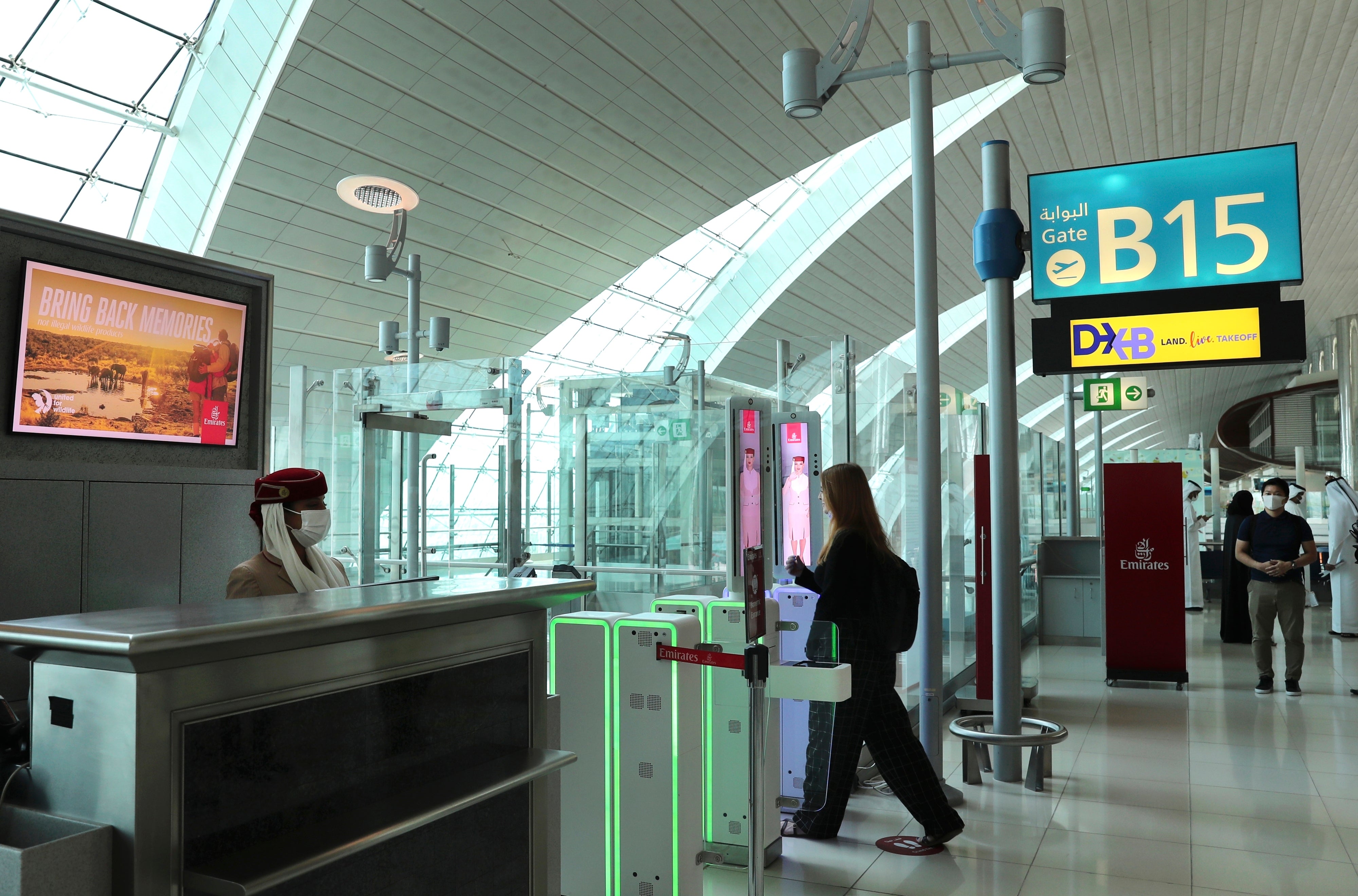At Dubai airport, travelers' eyes become their passports
Dubai's airport, the world’s busiest for international travel, has introduced an iris-scanner that verifies one’s identity and eliminates the need for any human interaction when entering or leaving the country

Your support helps us to tell the story
From reproductive rights to climate change to Big Tech, The Independent is on the ground when the story is developing. Whether it's investigating the financials of Elon Musk's pro-Trump PAC or producing our latest documentary, 'The A Word', which shines a light on the American women fighting for reproductive rights, we know how important it is to parse out the facts from the messaging.
At such a critical moment in US history, we need reporters on the ground. Your donation allows us to keep sending journalists to speak to both sides of the story.
The Independent is trusted by Americans across the entire political spectrum. And unlike many other quality news outlets, we choose not to lock Americans out of our reporting and analysis with paywalls. We believe quality journalism should be available to everyone, paid for by those who can afford it.
Your support makes all the difference.Dubai’s airport, the world’s busiest for international travel, can already feel surreal, with its cavernous duty-free stores, artificial palm trees, gleaming terminals, water cascades and near-Arctic levels of air conditioning.
Now, the key east-west transit hub is rolling out another addition from the realm of science fiction — an iris-scanner that verifies one’s identity and eliminates the need for any human interaction when entering or leaving the country.
It’s the latest artificial intelligence program the United Arab Emirates has launched amid the surging coronavirus pandemic, contact-less technology the government promotes as helping to stem the spread of the virus. But the efforts also have renewed questions about mass surveillance in the federation of seven sheikhdoms, which experts believe has among the highest per capita concentrations of surveillance cameras in the world.
Dubai's airport started offering the program to all passengers last month. On Sunday, travelers stepped up to an iris scanner after checking in, gave it a good look and breezed through passport control within seconds. Gone were the days of paper tickets or unwieldy phone apps.
In recent years, airports across the world have accelerated their use of timesaving facial recognition technology to move passengers to their flights. But Dubai's iris scan improves on the more commonplace automated gates seen elsewhere, authorities said, connecting the iris data to the country's facial recognition databases so the passenger needs no identifying documents or boarding pass. The unusual partnership between long-haul carrier Emirates, owned by a Dubai sovereign wealth fund, and the Dubai immigration office integrates the data and carries travelers from check-in to boarding in one fell swoop, they added.
“The future is coming," said Major Gen. Obaid Mehayer Bin Suroor, deputy director of the General Directorate of Residency and Foreign Affairs. “Now, all the procedures have become ‘smart,' around five to six seconds.”
But like all facial recognition technology, the program adds to fears of vanishing privacy in the country, which has faced international criticism for targeting journalists and human rights activists.
According to Emirates' biometric privacy statement, the airline links passengers' faces with other personally identifying data, including passport and flight information, retaining it for “as long as it is reasonably necessary for the purposes for which it was collected.” The agreement offered few details about how the data will be used and stored, beyond saying that while the company didn't make copies of passengers' faces, other personal data “can be processed in other Emirates' systems.”
Bin Suroor stressed that Dubai's immigration office “completely protects” passengers' personal data so that “no third party can see it.”
But without more information about how data will be used or stored, biometric technology raises the possibility of misuse, experts say.
“Any kind of surveillance technology raises red flags, regardless of what kind of country it’s in,” said Jonathan Frankle, a doctoral student in artificial intelligence at the Massachusetts Institute of Technology. ”But in a democratic country, if the surveillance technology is used transparently, at least there’s an opportunity to have a public conversation about it."
Iris scans, requiring people to stare into a camera as though they're offering a fingerprint, have become more widespread worldwide in recent years as questions have arisen over the accuracy of facial recognition technology. Iris biometrics are considered more reliable than surveillance cameras that scan people's faces from a distance without their knowledge or consent.
Despite concerns about overzealous surveillance in the UAE, the country's vast facial recognition network only shows signs of expanding. Last month, Prime Minister Sheikh Mohammed bin Rashid Al Maktoum who also serves as Dubai's ruler, announced the country would begin trials of new facial recognition technology to cut down on paperwork in “some private sector services,” without elaborating.
During the pandemic, the skyscrapper-studded city of Dubai has advanced an array of technological tools to fight the virus in malls and on streets, including disinfectant foggers, thermal cameras and face scans that check for masks and take temperatures. The programs similarly use cameras that can record and upload people's data, potentially feeding the information into the city-state's wider biometric databases.